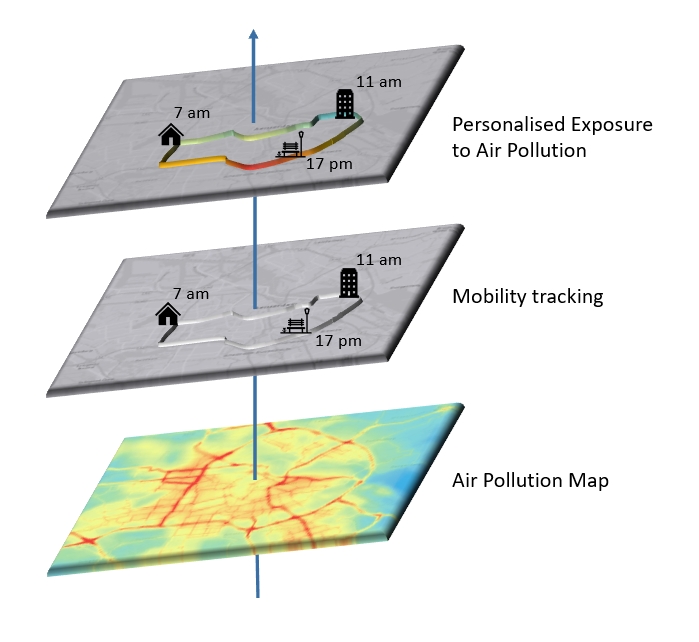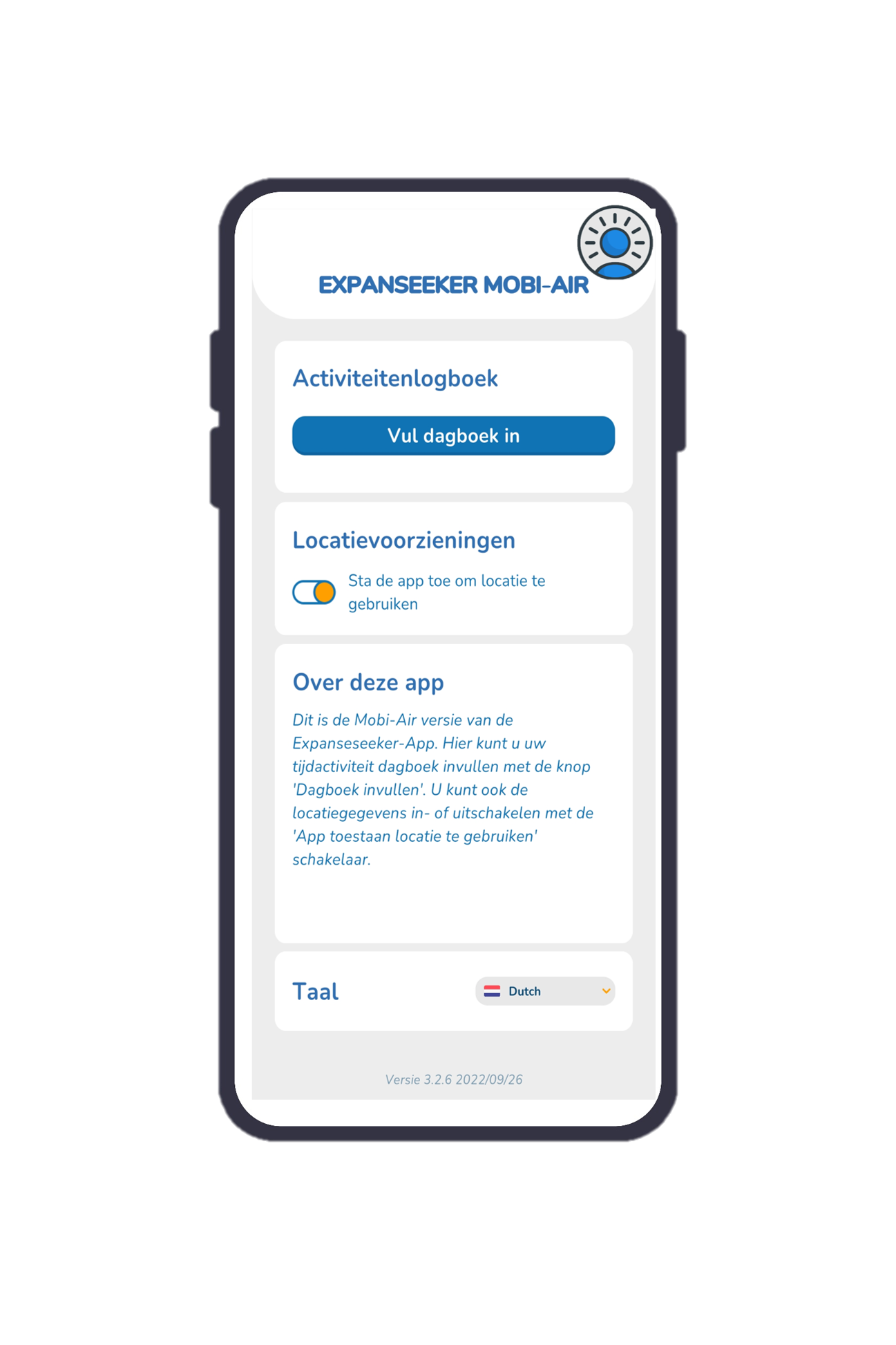MOBI-AIR: Accounting for mobility in air pollution exposure estimates in studies on long-term health effects
Volunteers are wanted!
We, researchers at Utrecht University (UU), would like to invite you to be part of our new research project MOBI-AIR!
In this new project, we are investigating the extent to which human mobility patterns influence our exposure to air pollution. The outcome of this project will be vital for more accurate exposure assessments in studies of the relationship between air pollution and health. We will send you personalized reports to help you figure out your air pollution exposure during your daily activities.
![]()
Participation in this survey takes two weeks
![]()
It is entirely contactless
![]()
Research data will be pseudonymised, adhering to GDPR
![]()
Participation is voluntary
![]()
Compensation 25€
Exposure to air pollution is associated with several diseases, including respiratory and cardiovascular diseases, as well as possibly diabetes and dementia. Your exposure to air pollution is not the same everywhere. When you are exercising or visiting other places (mobility patterns), you are exposed to different levels of air pollution. Most health studies assess air pollution exposure only at people’s home addresses, which may not reflect our total exposure related to our daily lifestyle.
We want to investigate the missing piece of the puzzle: the influence of human mobility patterns on exposure to air pollution. We are asking 1000 adults across the Netherlands to participate for 2 weeks. We ask participants to track their mobility patterns during those two weeks and share them with the research team. Only data about the pattern of your movements will be kept, and some personal information (age, gender, health, etc.) will be asked via a questionnaire. The mobility patterns will be linked to air pollution maps we created in previous studies. This will allow us to calculate exposure to air pollution at a person’s home and compare it to exposure at work, other activities or during commuting (see figure). The personal data are used to predict the mobility of the Dutch population and investigate the health effects of air pollution.
- Fill in a short online questionnaire where we ask you some basic questions (20 min, once).
- Carry a GPS tracker. We will send it to you by post. You will be asked to carry it with you for 2 weeks during your daily routine wherever you go away from home (work, commuting, shopping, recreation and sports). The tracker device stores your geographic position (GPS) every second. It is a small light sensor (150gr, 80mm x 80mm x 27mm) that you can easily carry in a bag or pocket.

3. Use an App developed specifically for this study to answer short questions about your daily activities. (For example commuting by bike/bus or at the office/home). The app will be available for both iOS and Android smartphones. The app will also store your geographic position every 5 minutes. You can delete the app after two weeks of participation. 
![]() I am an adult (18+)
I am an adult (18+)
![]()
I have lived in the Netherlands for at least 1 year
![]()
I have a smartphone
![]()
I have internet access
![]()
I can install and use smartphone applications
![]()
I have no problem wearing a 150 gr tracker during my daily activities for 2 weeks



